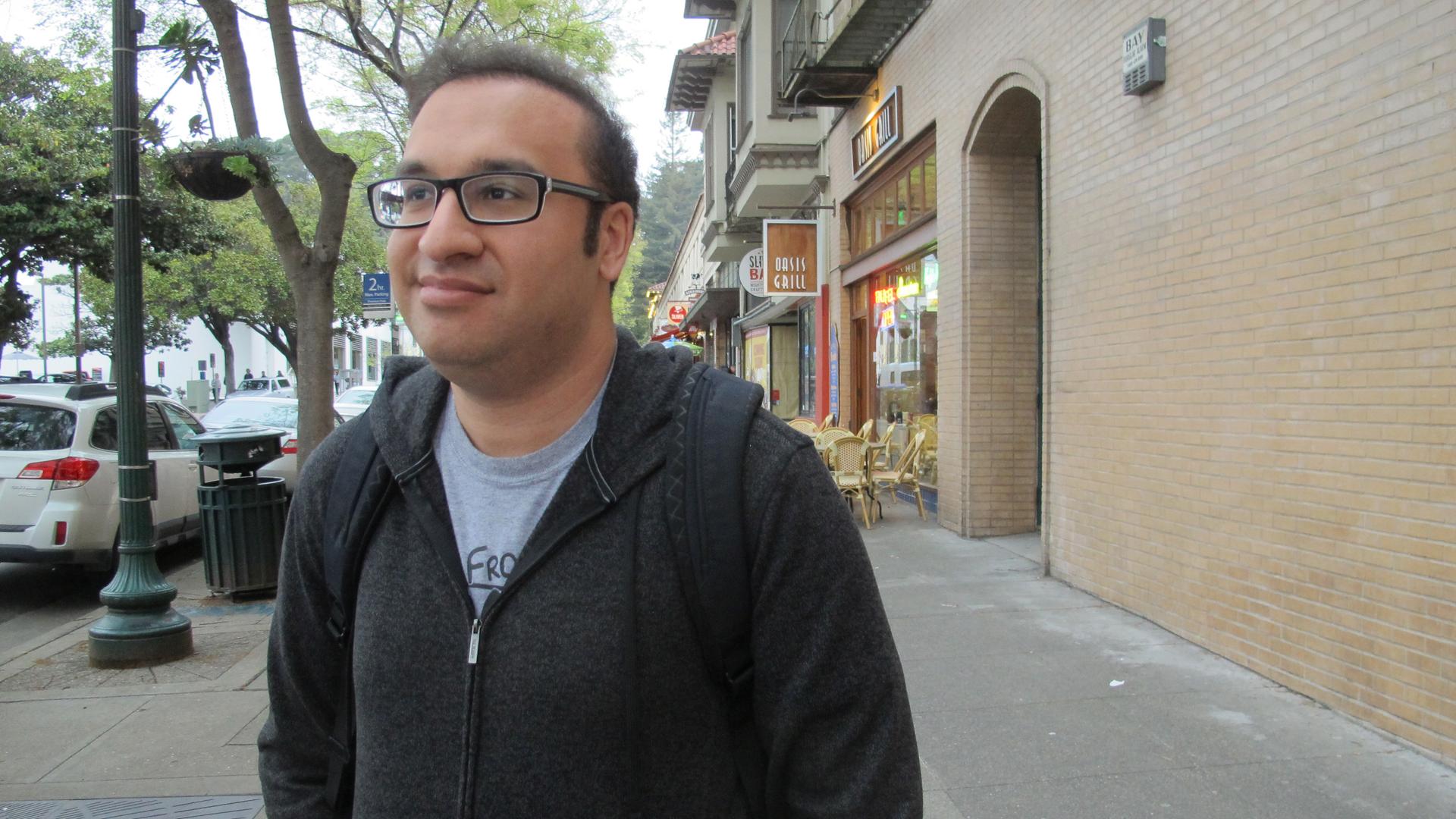Sarmad Gilani, 31, was featured in an article on Breitbart News about possible terrorists. He fears the climate in the US will become so hostile that American Muslims might have to eventually leave the country.
Sarmad Gilani was working at Google’s offices in San Francisco one morning when he received a message that two cops were waiting for him in Google’s lobby.
The 31-year-old software engineer at Google figured the officers just wanted to talk about an unpaid parking ticket. But Gilani also wondered if the officers had a more complicated motive.
“Just in case they throw me in Guantanamo, please bail me out,” he told a co-worker.
Gilani joked about the US prison for terrorist detainees because he’s a practicing Muslim. But there was nothing funny about this visit. When he entered the lobby, an officer who worked with the FBI’s Joint Terrorism Task Force approached him with a police officer.
This is not another story about an immigration raid in the first months of Donald Trump’s presidency. Gilani is a US citizen. He grew up rooting for the Houston Rockets. He says he’s seen way too many episodes of "Law & Order." And he was raised in a Midwestern town with a name straight out of an episode of "The Simpsons": Normal, Illinois.
Gilani never felt different until he became an adult. He started getting pulled aside for additional screening every time he got on an airplane. Airport officials would swab his bags for explosives and had to get special clearance to issue him a boarding pass.
“This probably happened 15 or 20 times,” Gilani said, “in a row.”
From his current home in the Bay Area, Gilani filed a Freedom of Information Act request to find out why he has so much difficulty traveling. The two officers who visited Gilani at Google said they wanted to talk about his travel problems. But then the subject changed.
“One of them asked me how I felt about drone strikes in Pakistan,” Gilani said, “and how awful it must be for the victims.”
Gilani has never lived in Pakistan. His parents immigrated to the United States from Lahore, Pakistan, in the '70s. But Gilani only knows his parents' home from occasional trips with his family growing up.
The officers' visit with Gilani at Google wasn’t an isolated incident. More than a thousand Muslims in the Bay Area have reported that FBI agents or police have shown up to speak with them. Officers are usually fishing for information about terrorism, or trying to turn Muslim Americans into informants.
Widespread FBI surveillance of Muslims had become normal even before Trump took office. The FBI agent visited Sarmad with a local police officer back in 2014. They violated the Safe San Francisco Civil Rights Ordinance, which prohibits city police from directly collaborating in FBI counterterrorism investigations by asking questions.
The FBI and the San Francisco Police Department wouldn’t specifically comment for this story. But advocates say the police overstepped their role in asking Gilani to participate in voluntary questioning. Zahra Billoo, the executive director of the Council on American-Islamic Relations (CAIR) in the Bay Area, worried that Trump’s campaign promises to increase the surveillance of Muslims might actually fuel terrorism.
“We were concerned that the rhetoric that Donald Trump was using to target Muslims was going to be leveraged by ISIS,” Billoo said, “to say that America is at war with Islam.”
Billoo now hopes that San Francisco can exemplify how communities all over the country can push back against anti-Muslim policies. CAIR helped file a complaint that pressured the San Francisco Police Department to comply with the city ordinance that limits its collaboration with the FBI. The department announced last February that it would stop working with the FBI’s Joint Terrorism Task Force.
Several Bay Area organizations, including CAIR, have released an online guide explaining how cities can work to make local law enforcement’s collaboration with the FBI more transparent.
Gilani still worries about the future of Muslims here in this country, even for US citizens like himself. During the presidential election, Gilani was featured in an article on Breitbart News about possible terrorists. He had heard of Breitbart but didn’t take the website of the "alt-right" seriously. His attitude has changed now that one of Breitbart's founders, Steve Bannon, has become President Trump’s chief strategist.
“It’s totally conceivable that Steve Bannon might put together a list of possible terrorists, and my name’s going to be front and center,” Gilani said.
If Trump actually does create a Muslim registry, Gilani fears the climate will become so hostile that American Muslims might have to leave. Some days, he even thinks about moving abroad himself. But this country is Gilani’s home. And he says now he has to learn how to feel comfortable here, even though he suspects he’s still being watched.
Every day, reporters and producers at The World are hard at work bringing you human-centered news from across the globe. But we can’t do it without you. We need your support to ensure we can continue this work for another year.
Make a gift today, and you’ll help us unlock a matching gift of $67,000!
